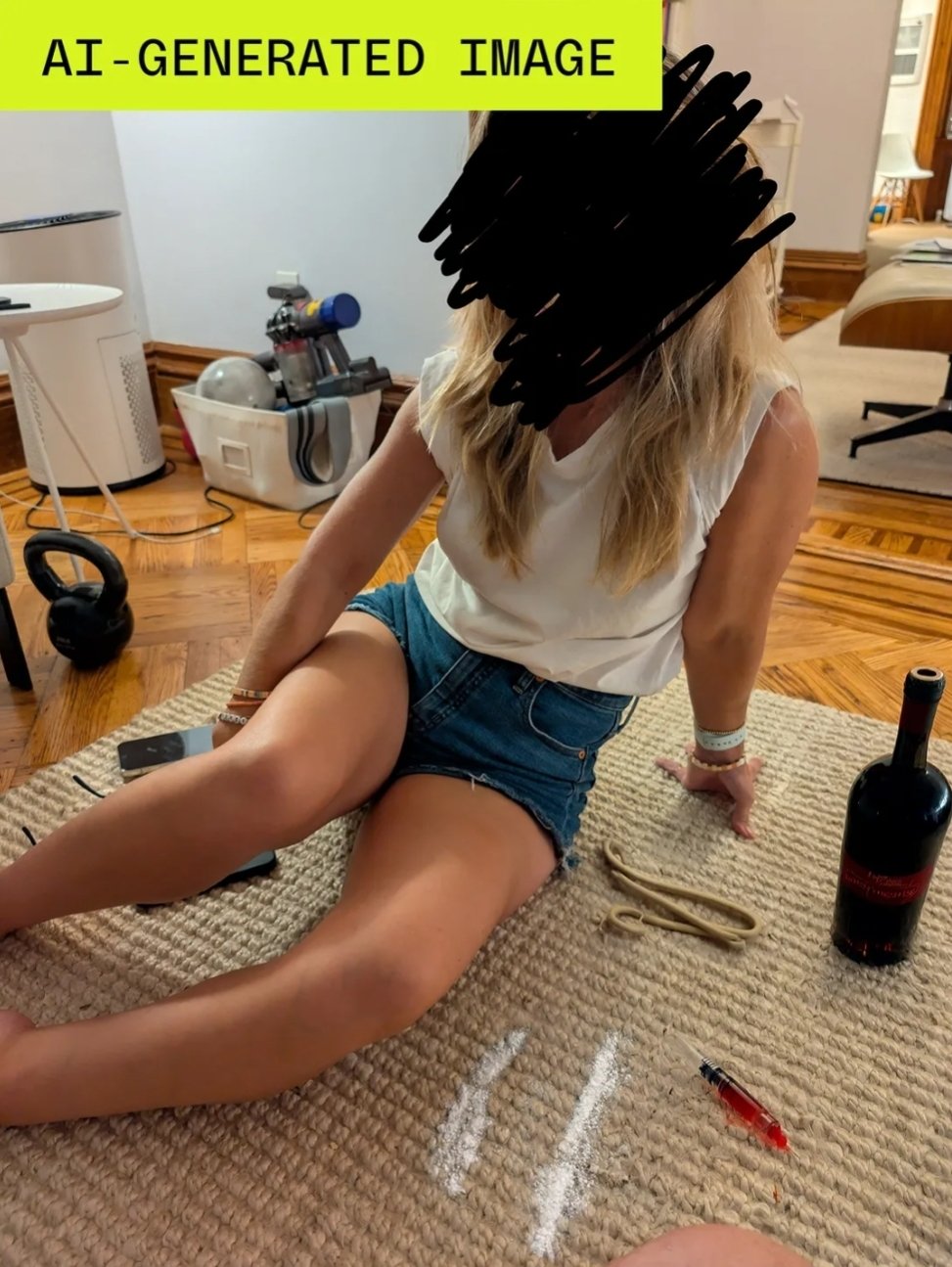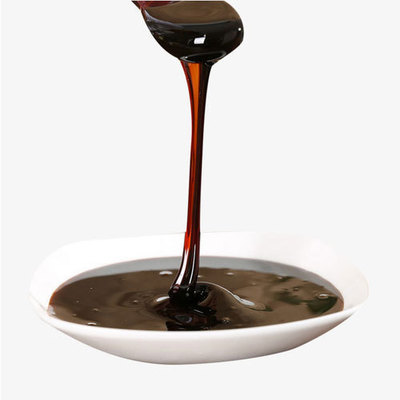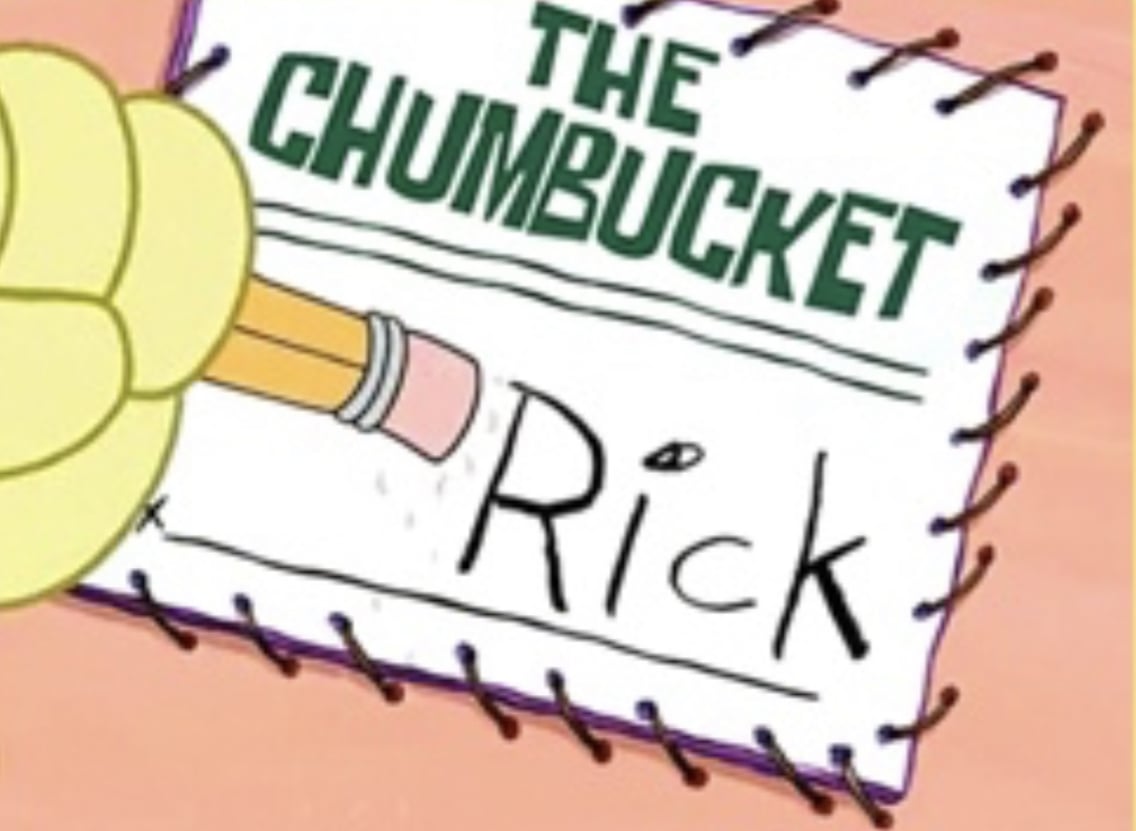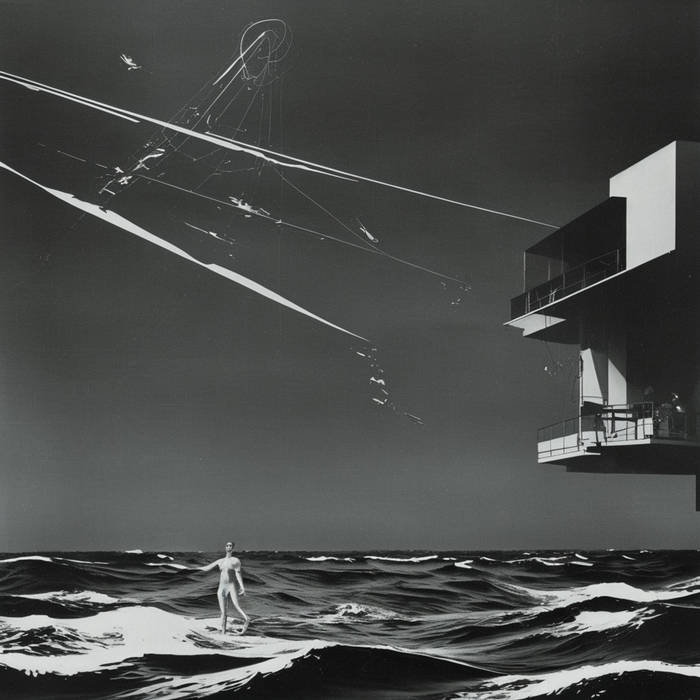TL;DR: The new Reimage feature on the Google Pixel 9 phones is really good at AI manipulation, while being very easy to use. This is bad.
This is bad
Some serious old-man-yelling-at-cloud energy
It’ll sink in for you when photographic evidence is no longer admissible in court
Photoshop has existed for a bit now. So incredibly shocking it was only going to get better and easier to do, move along with the times oldtimer.
Photoshop requires time and talent to make a believable image.
This requires neither.
But it has been possible, for more than a decade
You said “but” like it invalidated what I said, instead of being a true statement and a non sequitur.
You aren’t wrong, and I don’t think that changes what I said either.
Lmao, “but” means your statement can be true and irrelevant at the same time. From the day photoshop could fool people lawyers have been trying to mark any image as faked, misplaced or out of context.
When you just now realise it’s an issue, that’s your problem. People can’t stop these tools from existing, so like, go yell at a cloud or something.
Well yeah, I’m not concerned with its ease of use nowadays. I’m more concerned with the computer forensics experts not being able to detect a fake for which Photoshop has always been detectable.
As the cat and mouse game continues, we ask ourselves, is water still wet?
Just wait, image manipulation will happen at image creation and there will be no “original”. Proving an image is unmanipulated will be a landmark legal precedent and set the standard for being able to introduce photographic evidence. It is already a problem for audio recordings and will be eventually for video.
I really don’t have much knowledge on it but it sound like it’s would be an actual good application of blockchain.
Couldn’t a blockchain be used to certify that pictures are original and have not been tampered with ?
On the other hand if it was possible I’m certain someone either have already started it, it is the prefect investor magnet “Using blockchain to counter AI”
How would that work?
I am being serious, I am an IT and can’t see how that would work in any realistic way.
And even if we had a working system to track all changes made to a photo, it would only work if the author submitted the original image before any change haf been made, but how would you verify that the original copy of a photo submitted to the system has not been tempered with?
Sure, you could be required to submit the raw file from the camera, but it is only a matter of time untill AI can perfectly simulate an optical sensor to take a simulated raw of a simulated scene.
Nope, we simply have to fall back on building trust with photo journalists, and trust digital signatures to tell us when we are seeing a photograph modified outsided of the journalist’s agency.
Yep, I think we pictures are becoming a valuable as text and it is fine, we just need to get used to it.
Before photography became mainstream the only source of information was written, it is extremely simple to make a fake story so people had to rely on trusted sources. Then for a short period of history photography became a (kinda) reliable sources of information by itself and this trust system lost its importance.
In most cases seeing a photo means that we were seeing a true reflection of what happened, especially if we were song multiple photos of the same event.
Now we are arriving at the end of this period, we cannot trust a photo by itself anymore, tampering a photo is becoming as easy as writing a fake story. This is a great opportunity for journalists I believe.
There has never not been a time when photography was not manipulated in some way, be it as simple as picking a subject and framing it in a specific way can completely change the story.
I really enjoy photography as a hobby, however I find it a bit embarrasing and intrusive to take photos of other people, so my photos tend to look empty of people.
I will allways frame a picture to have no or as a very few people in it as possible.
In general I don’t edit my photos on the computer, I just let them speak for themselves, even if that story is a half truth.
We have never been able to trust photographs completely, though you make a good point about truth in numbers, that won’t go way just because of AI.
The big issue now is how easiy it is to make a completely believably faked photo out of an existing photo, we have been able to do this for decades, but is has been way, way harder to do.
As for the blockchain making photos valuable, we tried that, NFTs as a concept is dumb and has failed, I don’t believe that NFTs will be the future of ownership.
Image manipulation has always been a thing, and there are ways to counter it…
But we already know that a shocking amount of people will simply take what they see at face value, even if it does look suspicious. The volume of AI generated misinformation online is already too damn high, without it getting more new strings in it’s bow.
Governments don’t seem to be anywhere near on top of keeping up with these AI developments either, so by the time the law starts accounting for all of this, the damage will be long done already.
Removed by mod
But it’s never been this absolutely trivial to generate and distribute completely synthetic media. THAT is the real problem here.
Yep, this is a problem of volume of misinformation, the truth can just get buried by one single person generating thousands of fake photos, it’s really easy to lie, it’s really time consuming to fact check.
That’s precisely what I mean.
The effort ratio between generating synthetic visual media and corroborating or disproving a given piece of visual media has literally inverted and then grown by an order of magnitude in the last 3-5 years. That is fucking WILD. And more than a bit scary, when you really start to consider the potential malicious implications. Which you can see being employed all over the place today.
Honestly yeah I agree. Many mainstream social media platforms are infested with shitty generated content to the point of being insanity.
All hail the nail and gear 😉
I work at a newspaper as both a writer and photographer. I deal with images all day.
Photo manipulation has been around as long as the medium itself. And throughout the decades, people have worried about the veracity of images. When PhotoShop became popular, some decried it as the end of truthful photography. And now here’s AI, making things up entirely.
So, as a professional, am I worried? Not really. Because at the end of the day, it all comes down to ‘trust and verify when possible’. We generally receive our images from people who are wholly reliable. They have no reason to deceive us and know that burning that bridge will hurt their organisation and career. It’s not worth it.
If someone was to send us an image that’s ‘too interesting’, we’d obviously try to verify it through other sources. If a bunch of people photographed that same incident from different angles, clearly it’s real. If we can’t verify it, well, we either trust the source and run it, or we don’t.
If a bunch of people photographed that same incident from different angles, clearly it’s real.
I don’t think you can assume this anymore.
Yeah photo editing software, and AI, can be used to create images from different points of view, mimicking different styles, and qualities, of different equipment, and make adjustments for continuity from perspective, to perspective. Unless we have way for something, like AI, to be able to identify fabricated images, using some sort of encoding fingerprint, or something, it won’t be forever until they are completely indiscernible from the genuine article. You would have to be able to prove a negative, that the person who claims to have taken the photo could not have, in order to do so. This, as we know, is far more difficult than current discretionary methods.
The point I’m making isn’t really about the ability to fake specific angles or the tech side of it. It’s about levels of trust and independent sources.
It’s certainly possible for people to put up some fake accounts and tweet some fake images of seperate angles. But I’m not trusting random accounts on Twitter for that. We look at sources like AP, Reuters, AFP… if they all have the same news images from different angles, it’s trustworthy enough for me. On a smaller scale, we look at people and sources we trust and have vetted personally. People with longstanding relationships. It really does boil down to a ‘circle of trust’: if I don’t know a particular photographer, I’ll talk to someone who can vouch for them based on past experiences.
And if all else fails and it’s just too juicy not to run? We’d slap a big 'ole ‘this image has not been verified’ on it. Which we’ve never had to do so far, because we’re careful with our sources.
Sorry, but if traditional news media loses much more ground to “alternative fact” land, and other reasons for decline vs the new media, I have zero faith they won’t just give in and go with it. I mean, if they are gonna fail anyway, why not at least see if they can get themselves a slice of that pie.
Personally I think this kind of response shows how not ready we are, because it is grounded in the antiquated assumption that it is just more of the same old instead of a complete revolution in both the quality and quantity of fakery going to happen.
Photo manipulation has been around as long as the medium itself. And throughout the decades, people have worried about the veracity of images. When PhotoShop became popular, some decried it as the end of truthful photography. And now here’s AI, making things up entirely.
I actually think it isn’t the AI photo or video manipulation part that makes it a bigger issue nowadays (at least not primarily), but the way in which they are consumed. AI making things easier is just another puzzle piece in this trend.
Information volume and speed has increased dramatically, resulting in an overflow that significantly shortens the timespan that is dedicated to each piece of content. If i slowly read my sunday newspaper during breakfast, then i’ll give it much more attention, compared to scrolling through my social media feed. That lack of engagement makes it much easier for missinformation to have the desired effect.
There’s also the increased complexity of the world. Things can on the surface seem reasonable and true, but have knock on consequences that aren’t immediately apparent or only hold true within a narrow picture, but fall appart once viewed from a wider perspective. This just gets worse combined with the point above.
Then there’s the downfall of high profile leading newsoutlets in relevance and the increased fragmentation of the information landscape. Instead of carefully curated and verified content, immediacy and clickbait take priority. And this imo also has a negative effect on those more classical outlets, which have to compete with it.
You also have increased populism especially in politics and many more trends, all compounding on the same issue of missinformation.
And even if caught and corrected, usually the damage is done and the correction reaches far fewer people.
Unfortunately, newspapers and news sources like it that verify information reasonably well aren’t where most people get their info from anymore, and IMO, are unlikely to be around in a decade. It’s become pretty easy to get known misinformation widely distributed and refuting it does virtually nothing to change popular opinion on these stories anymore. This is only going to get worse with tools like this.
I can’t control where people find their information, that’s a fact. If people choose to find their news on unreliable, fake, agenda-driven, bot-infested social media, there’s very little I can do to stop that.
All I can do is be the best possible source for people who choose to find their news with us.
The ‘death of newspapers’ has been a theme throughout the decades. Radio is faster, it’s going to kill papers. TV is faster, it’s going to kill papers. The internet is faster, it’s going to kill newspapers… and yet, there’s still newspapers. And we’re evolving too. We’re not just a printed product, we also ARE an internet news source. The printed medium isn’t as fast, sure, but that’s also something that our actual readers like. The ability to sit down and read a properly sourced, well written story at a time and place of their choosing. A lot of them still prefer to read their paper saturday morning over a nice breakfast. Like any business, we adapt to the changing needs of consumers. Printed papers might not be as big as they once were, but they won’t be dying out any time soon.
I don’t dispute the usefulness of proper reporting, but at the rate I see newspapers dropping all around us, I’ll be astounded if there’s more than a very few around in a decade. But maybe I’m wrong and people will surprise me and start looking for quality reporting. Doubt it, but maybe.
oddly enough, there are models trained to generate different angles of a given scene!
you’re right about the importance of trust. leveraging and scaling interpersonal trust is the key to consensus.
If a bunch of people photographed that same incident from different angles, clearly it’s real
Interesting that this is the threshold because it might need to be raised. In the past it was definitely true that perspective was a hard problem to solve, so multiple angles would increase the likelihood of veracity. Now with AI tools and even just the proliferation and access to 3D effects packages it might no longer be the case.
Well again, multiple, independent sources that each have a level of trust go pretty far.
From my personal experience with AI though… I found it difficult to get it to generate consistent images. So if I’d ask it for different angles of the same thing, details on it would change. Can it be done? Sure. With good systems and a bit of photoshopping you could likely fake multiple angles of it.
But for the images we run? It wouldn’t really be worth the effort I imagine. We’re not talking iconic shots like the ones mentioned in the article.
Except that’s not what happens.
Just take a look at Facebook. Tons of AI generated slop with tens or even hundred thousands likes and people actually believing them. I live in Indonesia, and people often shares fake things just for monetisation engagement and ordinary people have no skill no discern them.
You and I, or even every person here are belong to the rare people that actually able to discern information properly. Most people are just doom scrolling the internet and believing random things that appears to be realistic. Especially for people where tech eduation and literation are not widespread.
Thank you. This was a well thought out and logical response.
Removed by mod
Photoshop has existed for years. It’s no different than a student in 2010 being shocked at the horrors of man and trying to figure out how it could be faked with a computer. People have denied the Holocaust for generations!
It is different. The old Photoshop process took a lot of time. Now an image can be manipulated incredibly quickly and spread almost as fast before anyone has time to do anything about it.
This argument keeps missing that it is not only the quality but mainly the quantity of fakes which is going to be the problem. The complete undermining of trust in photographic evidence is seen as a good thing for so many nefarious vested interests, that this is an aim they will actively strive for.
Were they from the .ml instances?
How is it sad? If they’re young and/or don’t have the best schooling, it’s not their fault they haven’t heard of it. And then they encounter an absurd picture and approach it with skepticism? That’s not sad at all. Healthy skepticism is good, especially with the influx of AI generated content
We literally lived for thousands of years without photos. And we’ve lived for 30 years with Photoshop.
The article takes a doomed tone for sure but the reality is we know how dangerous and prolific misinformation is.
So, shouldn’t the pretense that images are sources of truth evaporating, be a good thing?
Except it was way harder to do.
Now call me a “ableist, technophobic, luddite”, that wants to ruin the chance of other people making GTA-like VRMMORPGs from a single line of prompt!
Awful title.
Clickbait 101
It’s the verge, after all. Nobody should read their slop
Relevant XKCD. Humans have always been able to lie. Having a single form of irrefutable proof is the historical exception, not the rule.
Regarding that last panel, why would multiple people go through the trouble of carving lies about Ea-Nasir’s shitty copper? And even if they did, why would he keep them? No, his copper definitely sucked.
The obvious conjecture is that they were trying to commit fraud and get free copper
interesting thought. we haven’t had photos in history, and people didn’t need them. also, we’ve been able to produce text deepfakes all throughout history (and people actually did that - a lot) and somehow, humanity still survived and made progress. maybe we should question our assumptions whether we really need a medium to communicate absolute truth.
If you’re getting your truth from somewhere you don’t trust, you’ve already lost the plot. Having a medium to convey absolute truth is NOT the exception, because it never existed. Not with first hand accounts, not with photos, not with videos. Anything, from its inception, has been able to be faked by someone motivated enough.
What we need is an industry of independent ethically driven individuals to investigate and be a trusted source of truth on the world’s important events. Then they can release journals about their findings. We can call them journalers or something, I don’t know, I don’t have all the answers. Too bad nothing like that exists when we need it most 🥲
What we need is distribution of power. Power acts upon information. There was that weird idea that with solid information there’s no need to distribute power. When people say “due process”, they usually mean that. This wasn’t true anyway.
Information is still fine, people lie and have always lied, humanity has always relied upon chains and webs of trust.
The issue is centralized power forcing you to walk their paths.
humanity still survived and made progress
Humanity never needed truth, for all of that. Only a good enough illusion.
It’s just that, most of the times the illusions are not good enough and the truth comes out.
This is a hyperbolic article to be sure. But many in this thread are missing the point. It’s not that photo manipulation is new.
It’s the volume and quality of photo manipulation that’s new. “Flooding the zone with bullshit,” i.e. decreasing the signal-to-noise ratio, can have a demonstrable social effect.
It seems like the only defense against this would be something along the lines of FUTO’s Harbor, or maybe Ghost Keys. I’m not gonna pretend to know enough about them technically or practically, but a system that can anonymously prove that you’re you across websites could potentially de-fuel that fire.
Them - and F2F.
Meh, those edited photos could have been created in Photoshop as well.
This makes editing and retouching photos easier, and that’s a concern, but it’s not new.
Something I heard in the photoshop VS ai argument is it makes an already existing process much faster and almost anyone can do it which increases the shear amount that one person or a group could make almost how a printing press made the production of books so much faster (if you’re in to history)
I’m too tired to take a stance so I’m just sharing some arguments I’ve heard
Making creating fake images even easier definitely isn’t great, I agree with you there, but it’s nothing that couldn’t already be done with Photoshop.
I definitely don’t like the idea you can do this on your phone.
Exactly, it was already established that pictures from untrusted sources are to be disregarded unless they can be verified by trusted sources.
It is basically how it has been forever with the written press: Just like everyone now has the capability to manipulate a picture. Everyone can write we are being invaded by aliens, but whether we should believe it is another thing.
It might take some time for the general public to learn this, but it should be a focus area of general schooling within the area of source criticism.
almost how a printing press made the production of books so much faster
… and we all know that lead to 30 years of bloody war, btw
Even a few months ago it was hard for people with the knowledge to use AI on photos. I don’t like the idea of this but its unavoidable. There is already so much misinformation and this will make it so much worse.
I don’t believe there’s misinformation because we fail to discern the truth though. Misinformation exists because people believe what they want to believe.
These photoshop comments are missing the point that it’s just like art, a good edit that can fool everyone needs someone that practiced a lot and has lots of experience, now even the lazy asses on the right can fake it easily.
I think this comment misses the point that even one doctored photo created by a team of highly skilled individuals can change the course of history. And when that’s what it takes, it’s easier to sell it to the public.
What matters is the source. What we’re being forced to reckon with now is: the assumption that photos capture indisputable reality has never and will never be true. That’s why we invented journalism. Ethically driven people to investigate and be impartial sources of truth on what’s happening in the world. But we’ve neglected and abused the profession so much that it’s a shell of what we need it to be.
The thing is that in the future the mere quantity of fakes will make the careful vetting process you describe physically impossible. You will be bombarded with high quality fakes to such an extent that you will simply have to give up trying to keep up, so it will be a choice of either dropping the vetting process or dropping bringing any pictures altogether. For profit driven corporate jwbed media outlets, the choice unfortunately will be obvious.
I’m not talking about vetting pictures. I’m talking about journalists who investigate issues THEMSELVES and uncover the truth. They take their OWN pictures and post them on their website and accounts putting their credibility as collateral. We trust them, not because it’s a picture, but because of who took it.
This already happened with text, people learned “Don’t believe everything you read!” And invented the press to figure out the truth. It used to be a core part of our society. But people were tricked into thinking pictures and video were somehow mediums of empirical truth, just because it’s HARD to fake. But never impossible. Which is worse, actually. So we neglected the press and let it collapse into a shit show because we thought we could do it ourselves.
Yeah, it is going to be mainly a quantity issue rather than a quality one. The quality of faked photos has already been high since photoshop. Now a constant growing avalanche of high quality fakes (produced by all sorts of different vested interests with their own particular purposes) is going to barrage us on a daily basis, simply because it is cheap and easy
People can write things that aren’t true! Oh no, now we can’t trust trustworthy texts such as scientific papers that have undergone peer review!
I mean… have you seen the scathing reports on scientific papers, psychology especially? Peer review doesn’t catch liars. It catches bad experimental design, and it sometimes screens out people the reviewers don’t like. Replication can catch liars sometimes, but even in the sciences that are ‘hard’ it is rare to see replication because that doesn’t bring the grant money in.
Photography manipulation existed almost since the invention of photography. It was only much harder see the famous photo edition https://www.history.com/news/josef-stalin-great-purge-photo-retouching
Great point. But tools that make it so a 10 year old can manipulate photos even better than your example in several minutes, are in fact fairly new.
Hell they can generate photos that fool 70% of people on Facebook, though now that I say that, maybe that bar isn’t too high…
This is only a threat to people that took random picture at face value. Which should not have been a thing for a long while, generative AI or not.
The source of an information/picture, as well as how it was checked has been the most important part of handling online content for decades. The fact that it is now easier for some people to make edits does not change that.
Your comment somehow just made me realize something: When we see/read news, we have to trust the one who’s telling them to us. Since we weren’t there in person to see it with our own eyes. Therefore, it’s always about a “chain of trust”.
This is true no matter whether photos can be manipulated or not. People have been able to lie since humanity exists. Nothing has really changed. Photography, just like globalization, has only brought everything closer together, making it easier to have a more direct, straightforward relationship to other people and events. With the beginning of AI, this distance between you and an event is going to increase a bit, but the core mechanics are still similar.
I kind of wonder, how do we really know that something is true? Do atoms actually exist? What if we’re being lied to by our authorities. You say “of course not”. But what if? I mean, if we blindly trust authorities, we end up like the republicans, who believe everything that fox news tells them. How, then, do we discern truth?
How, then, do we discern truth? I guess we have to give “proof” for everything, in the sense of mathematical proof. Something that everybody can follow, using only their fundamental assumptions and deduction. I guess that is what science is all about.
It’s always been about context and provenance. Who took the image? Are there supporting accounts?
But also, it has always been about the knowlege that no one… Absolutely no one… Does lines of coke from a woven mat floor covering.

Here is a famous faked photo of fairies from 1917 -> https://en.m.wikipedia.org/wiki/Cottingley_Fairies
Lots of obviously fake tipoffs in this one. The overall scrawny bitch aesthetic, the fact she is wearing a club/bar wrist band, the bottle of Mom Party Select™ wine, and the persons thumb/knee in the frame… All those details are initially plausible until you see the shitty AI artifacts.
All the details you just mentioned are also present in the unaltered photo though. Only the “drugs” are edited in.
Didn’t read the article, did you?
Lots of obviously fake tipoffs in this one. The overall scrawny bitch aesthetic, the fact she is wearing a club/bar wrist band, the bottle of Mom Party Select™ wine, and the persons thumb/knee in the frame… All those details are initially plausible until you see the shitty AI artifacts.
This is an AI-edited photo, and literally every “artifact” you pointed out is present in the original except for the wine bottle. You’re not nearly as good as spotting fakes as you think you are - nobody is
This comment is pure gold, you are already fooled but think you have a discerning eye, you are not immune to propaganda.

















